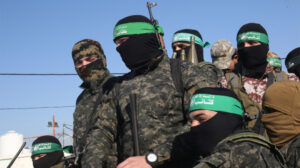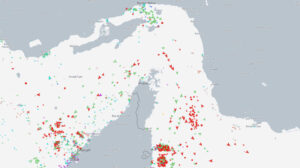The first phase of the ceasefire between Israel and Hamas in Gaza Strip concluded today, but negotiations for the next stage, in which the war is expected to end for good, have not yet reached a conclusion.
The ceasefire came into effect on 19 January after 15 months of bloody war, triggered by an unprecedented attack by Hamas against Israel on 7 October 2023.
The agreement provides for three phases of 42 days each.
During the first phase, the Palestinian organization released 25 hostages held in Gaza and returned eight hostage bodies to Israel in exchange for some 1,800 Palestinian prisoners.
The second phase of this fragile ceasefire – which was brokered by the US, Qatar and Egypt and after months of painful negotiations – was normally due to begin today. As part of it, the last Hamas hostages and several hundred Palestinian prisoners in Israel will be released.
The third phase will be devoted to the reconstruction of the Gaza Strip, with the UN estimating the cost of this project at more than $53 billion.
Israeli Prime Minister Benjamin Netanyahu, who sent envoys to Cairo on Thursday to discuss the second phase of the ceasefire with mediators from Egypt, Qatar and the US, was expected to convene a meeting with security officials last Friday night, according to Israeli media.
“The parties concerned have begun intensive discussions to examine the next phases of the ceasefire agreement in the context of ongoing efforts to guarantee the implementation of the agreements reached,” the Egyptian government said on Thursday.
But there were no signs of any agreement this morning, and the Hamas delegation has not been seen in Cairo.
Experts believe the most likely scenario – and the one Israel prefers – is an extension of the first phase of the ceasefire.
“One thing is certain, the second phase will not start tomorrow (today, Saturday), but the ceasefire will probably not collapse,” Max Rodenbeck, an analyst at the International Crisis Group, said yesterday.
The agreement contains an article that provides for an automatic extension of the first phase for as long as talks on the second phase last.
Hamas, for its part, called on the international community to put pressure on Israel “to start the second phase of the agreement immediately without delays and hesitation.”
The Palestinians stressed “its full commitment to the implementation of all terms of the agreement in all phases.”
Of the 251 hostages captured by Hamas, 58 remain in the Gaza Strip, of whom 34 are dead, according to the Israeli army.
“The ceasefire agreement and the release of Israeli hostages must be respected. The days ahead are of utmost importance. The sides must make every effort to prevent this agreement from collapsing,”UN Secretary-General Antonio Guterres stressed yesterday.
Negotiations for the second phase are forecast to be difficult. Israel is demanding the complete demilitarization of Gaza and the elimination of Hamas. The Palestinian organization insists it will remain in the enclave.
Netanyahu is also under pressure from his far-right allies in the government who oppose ending the war.
During the first 42 days of the ceasefire, humanitarian aid has managed to enter Gaza, where more than 69% of the buildings have either been damaged or destroyed and almost all of the residents have been displaced and live in dire conditions, without drinking water, food or medicine.
The ceasefire negotiations coincide with the start today of Ramadan, the Muslim holy month. Amid the ruins of a destroyed neighborhood in Khan Younis, in southern Gaza, residents hung traditional lanterns and worshippers joined in night prayers at mosques.
Ask me anything
Explore related questions





